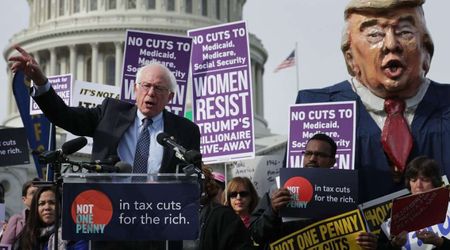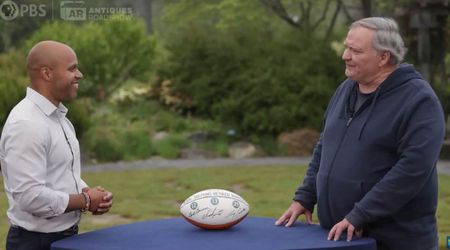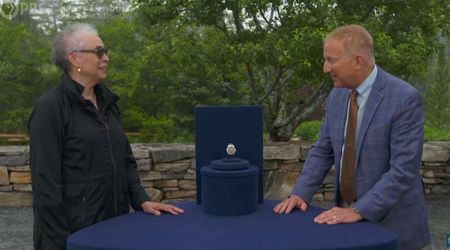Bud Light, Still Facing Backlash Following a Partnership, Is Selling For Less Than Water At Some Places

Bud Light, once the reigning champion of the beer market in the United States, has experienced a significant downfall in recent times. What was once the most popular beer in the country is now being sold for less than water in some American warehouses. The decline in Bud Light's sales has left industry insiders and consumers alike wondering how a brand that once dominated the market could fall so far from grace.
Partnership with Dylan Mulvaney Cost Dear
One of the pivotal moments in Bud Light's decline can be traced back to a partnership with transgender activist Dylan Mulvaney. In a collaboration with Bud Light, Mulvaney's face was featured on cans of the beer, commemorating her viral '365 Days of Girlhood' series, which chronicled her experiences as a transgender woman on TikTok. While this partnership was intended to be a milestone for inclusivity, it ended up generating a wave of controversy and backlash.

Boycott and Consumer Backlash
The partnership with Mulvaney triggered a significant consumer backlash, resulting in boycotts and a steep decline in sales for Bud Light. Stores were forced to give away the beer for free, and Anheuser-Busch, the parent company of Bud Light, had to buy back expired beers from wholesalers. The social media outrage was palpable, with consumers expressing their discontent and disappointment with the brand's decision to align itself with Mulvaney.

Anheuser-Busch's Marketing Strategy and Evolution
Bud Light's marketing strategy had always relied on a certain brand image, characterized by fratty and out-of-touch humor. However, the disastrous partnership with Mulvaney exposed a need for evolution and a shift in tone. Alissa Heinerscheid, Bud Light's marketing VP, acknowledged the necessity for inclusivity and a campaign that appeals to a wider audience. The brand had to distance itself from its previous image and adapt to changing societal values.

Impact on Sales and Bottling Companies
The fallout from the partnership and subsequent boycott had a substantial impact on Bud Light's sales. The brand experienced a nearly 30 percent drop in sales, and the consequences extended beyond Bud Light itself. The Ardagh Group, a global bottling company that contracted with Anheuser-Busch, was severely affected by Bud Light's decline. As a result, the company was forced to close its plants in North Carolina and Louisiana, leaving hundreds of employees without jobs.
Lack of Support for Mulvaney and LGBTQ+ Community
One of the significant criticisms leveled against Bud Light was its lack of support for Dylan Mulvaney and the LGBTQ+ community. Mulvaney expressed disappointment in the brand's failure to publicly stand by her during the backlash. This lack of support led members of the LGBTQ+ community to withdraw their support for the brand, further impacting Bud Light's reputation and sales.

Uncertain Future
As Bud Light faces an uncertain future, CEO Brendan Whitworth's response to the crisis has drawn criticism. Whitworth avoided addressing whether the company would partner with Mulvaney again and failed to provide a clear answer regarding the cost of the marketing blunder. The CEO's response left consumers questioning the brand's commitment to understanding and meeting the desires of its target audience.
Bud Light's journey from being the best-selling beer in the U.S. to experiencing a significant decline in sales showcases the importance of brand image, inclusivity, and consumer support. The disastrous partnership with Dylan Mulvaney, the subsequent boycott, and the lack of support for Mulvaney and the LGBTQ+ community have all contributed to Bud Light's downfall. Moving forward, the brand faces the challenge of rebuilding its reputation and reconnecting with consumers who have lost faith in the once-beloved beer.























